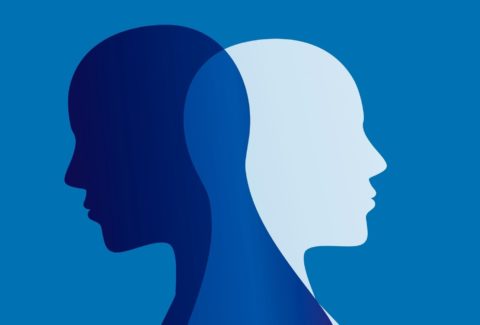Identity and Existential Therapy
Introduction
The concept of identity lies at the heart of the human experience. Who am I? What defines me? How do I navigate the roles I play in life while staying true to myself? Existential therapy[1] provides a framework for individuals to explore and understand their identity through the lens of freedom, authenticity, and meaning. It empowers people to confront the existential dilemmas that influence their sense of self and navigate life with greater clarity and purpose.
Existential Therapy: A Path to Identity Formation
Existential therapy, rooted in the works of philosophers like Søren Kierkegaard[2], Jean-Paul Sartre[3], and Martin Heidegger[4], emphasizes the individual’s responsibility to define their identity. Unlike deterministic approaches, existential therapy views identity as fluid and shaped by choices, values, and the meaning we ascribe to life’s experiences.
Viktor Frankl[5], in his groundbreaking work Man’s Search for Meaning[6], highlighted the importance of personal responsibility in shaping identity, even under extreme circumstances. He argued that identity is not something fixed or given but something created by the individual’s response to life’s challenges.
Core Themes of Identity in Existential Therapy
- Authenticity and Self-Discovery: Authenticity is central to existential therapy. To live authentically means to align with one’s true self rather than conform to societal expectations or external pressures.[7] Therapy encourages clients to explore who they are beneath the roles they play and the labels they carry.
Reflection: Are you living a life that is truly your own, or are you guided by external influences?
- Freedom and Responsibility: Identity formation requires freedom[8]—the ability to make choices about who we are. Yet, with freedom comes the responsibility to accept the consequences of those choices. Sartre described this as “condemned to be free,” emphasizing that we must take ownership of the life we create.
Reflection: How do your daily choices shape your sense of identity?
- Meaning and Purpose: Existential therapy posits that identity is closely tied to meaning[9]. Who we are is reflected in what we value and the purpose we pursue. By identifying and living in alignment with personal values, individuals can forge a coherent and fulfilling identity.
Reflection: What values guide your sense of self?
- The Role of Anxiety and Uncertainty: Anxiety, or existential angst, often arises when individuals confront the vast freedom they have to shape their identity.[10] Existential therapy helps clients face this uncertainty and use it as a catalyst for growth rather than avoidance .
Reflection: How does uncertainty about your identity manifest, and how can you embrace it?
Challenges in Identity Formation
- Role Confusion: Balancing multiple roles (e.g., parent, professional, partner) can lead to a fragmented sense of self.
- Cultural Expectations: Societal norms and cultural values often dictate identity, making it difficult for individuals to define themselves authentically.
- Existential Guilt: Failing to live in alignment with one’s true self can result in guilt and a sense of lost potential.
Existential therapy addresses these challenges by encouraging self-reflection, intentionality, and a commitment to living authentically.
Practical Applications in Therapy
- Values Clarification: Clients identify their core values and assess how their current lives align with those values.
- Exploration of Roles: Therapy examines the roles clients play and how these roles contribute to or detract from their authentic identity.
- The Miracle Question: A tool to help clients imagine their ideal selves and explore the steps needed to become that person.
Benefits of Identity Exploration in Existential Therapy
- Clarity and Coherence: Understanding who you are fosters a sense of stability and purpose.
- Empowerment: Taking ownership of identity promotes autonomy and confidence.
- Resilience: A strong sense of self equips individuals to navigate life’s uncertainties.
Reflection Questions for Clients
- Who are you beyond the roles you play in life?
- How do your values and actions align with your authentic self?
- What steps can you take to live more intentionally and authentically?
Conclusion
Identity is not a fixed entity but a dynamic process of self-discovery and creation. Existential therapy provides a transformative space for individuals to confront the questions that shape their identity, embrace freedom and responsibility, and live authentically. Through this process, clients gain a deeper understanding of themselves and their place in the world.
[1] Binder, Per-Einar. “Facing the uncertainties of being a person: On the role of existential vulnerability in personal identity.” Philosophical Psychology 37.8 (2024): 2220-2243.
[2] Shchyttsova, Tatiana. “KIERKEGAARD’S EXISTENTIAL THERAPY AND THE PROBLEM OF THE SUBJECT.” Topos (18150047) 1 (2014).
[3] Schuster, Shlomit C. “The practice of Sartre’s philosophy in philosophical counseling and existential psychotherapy.” Iyyun: The Jerusalem Philosophical Quarterly/עיון: רבעון פילוסופי (1995): 99-114.
[4] Cohn, Hans W. “Heidegger and the roots of existential therapy.” (2002).
[5] Frankl, Viktor E. “Logotherapy and existentialism.” Psychotherapy: Theory, Research & Practice 4.3 (1967): 138.
[6] Frankl, Viktor E. Man’s search for meaning. Simon and Schuster, 1985.
[7] Fazelzade, Fateme, et al. “Self-Discovery in Existential Psychotherapy: Comparing the Views of Sadra and Van Deurzen.” (2024).
[8] Todres, Les. “Experiential–Existential Therapy: Embodying Freedom and Vulnerability.” Existential Therapy. Routledge, 2012. 67-80.
[9] Wong, Paul TP. “Meaning therapy: An integrative and positive existential psychotherapy.” Journal of Contemporary Psychotherapy 40.2 (2010): 85-93.
[10] Wolfe, Barry E. “Existential issues in anxiety disorders and their treatment.” Existential-integrative psychotherapy: Guideposts to the core of practice (2008): 204-216.







